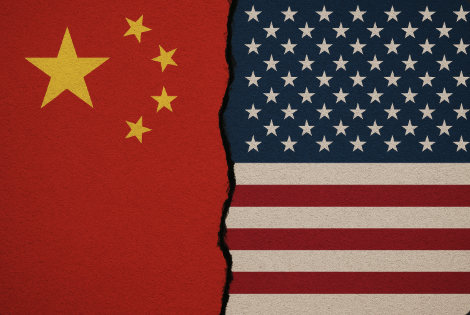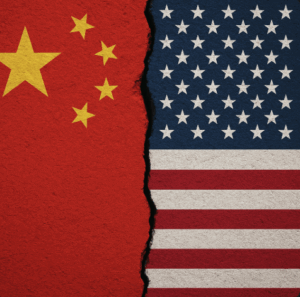KUALA LUMPUR/WASHINGTON — The United States and China have agreed on the framework of a potential trade deal that could ease tensions between the world’s two largest economies, U.S. Treasury Secretary Scott Bessent said on Sunday. The agreement, which will be discussed when President Donald Trump meets Chinese President Xi Jinping later this week in South Korea, marks the most significant breakthrough in bilateral economic relations since Trump’s return to the White House.
Bessent told CBS News that the framework includes a “final deal” on the U.S. operations of TikTok, a one-year deferral of China’s tightened export controls on rare earth minerals, and a resumption of major soybean purchases by Beijing. He added that the White House does not expect the recently threatened 100 percent tariff on Chinese imports to take effect.
“The tariffs will be averted,” Bessent said, adding that negotiators had reached a “substantial framework for the two leaders” to finalize in person.
A Bid to Cool Trade Tensions
The framework comes after months of escalating rhetoric and tariff threats. Earlier this month, Trump warned that a sweeping 100 percent tariff would be imposed on Chinese goods starting in November, accusing Beijing of “weaponizing” its dominance in rare earth minerals — critical materials used in electric vehicles, smartphones, and solar panels.
China, which processes roughly 90 percent of global rare earths, has agreed to delay its latest export restrictions for a year while both sides “re-examine” the policy, according to Bessent. In response, U.S. officials confirmed that Washington will temporarily hold off on implementing new tariffs as part of the tentative truce.
Beijing’s Ministry of Commerce issued a brief statement on Monday describing the talks as “constructive,” saying both sides had “reached a basic consensus on arrangements to address their respective concerns.”
TikTok and Tech Nationalism
One of the most contentious points in U.S.–China relations — the future of TikTok’s U.S. operations — appears close to resolution. The White House has long sought to separate the social media platform from its Chinese parent company, ByteDance, citing national security concerns over data privacy.
Under the emerging agreement, U.S. investors would control TikTok’s algorithm and Americans would hold six of seven board seats in its U.S. division. The move, expected to be finalized during the Trump–Xi summit, represents a notable shift for Trump, who once vowed to ban the app outright but later used it as a key campaign tool during his 2024 presidential run.
Agricultural Relief for U.S. Farmers
Soybeans — another flashpoint in the trade standoff — are also returning to the table. China, the world’s largest soybean importer, had previously halted all orders amid rising tariffs, devastating American farmers. Bessent, who described himself as a soybean farmer, suggested that the new deal would “address farmers’ concerns” for multiple seasons to come.
Broader Regional Moves
The U.S. also announced a series of trade initiatives across Southeast Asia during Trump’s visit to the region. Agreements with Malaysia, Cambodia, Thailand, and Vietnam aim to diversify U.S. access to critical minerals and manufacturing supply chains. In Malaysia, Trump signed new pacts for mineral cooperation; in Vietnam, he secured $8 billion in aircraft purchases from Boeing alongside expanded agricultural exports.
“Our message to the nations of Southeast Asia is that the United States is with you 100 percent,” Trump said during a speech in Kuala Lumpur. “We intend to be a strong partner for many generations.”
International Reactions
Global markets responded cautiously to the news. The Financial Times reported early gains in Asian equities following Bessent’s comments, while Reuters noted optimism among agricultural commodity traders. Chinese state media outlet Xinhua hailed the framework as “a step toward mutual understanding,” but warned that “implementation will be key.”
European leaders, meanwhile, expressed guarded relief. The European Commission said it welcomed any “de-escalation in global trade tensions,” though officials in Brussels privately voiced skepticism over the durability of a U.S.–China pact given Trump’s history of abrupt policy shifts.
Looking Ahead
If finalized, the deal would mark a rare moment of detente between Washington and Beijing after years of trade disputes, technology restrictions, and geopolitical rivalry. Yet analysts caution that the framework remains fragile and heavily dependent on political calculations on both sides.
“This is more of a ceasefire than a peace treaty,” said Daniel Rosen, a senior fellow at the Peterson Institute for International Economics. “Both governments are trying to buy time — and stability — without giving too much away.”
Trump and Xi are scheduled to meet on Thursday in Seoul for what is expected to be the most consequential U.S.–China summit since 2019. (zai)


